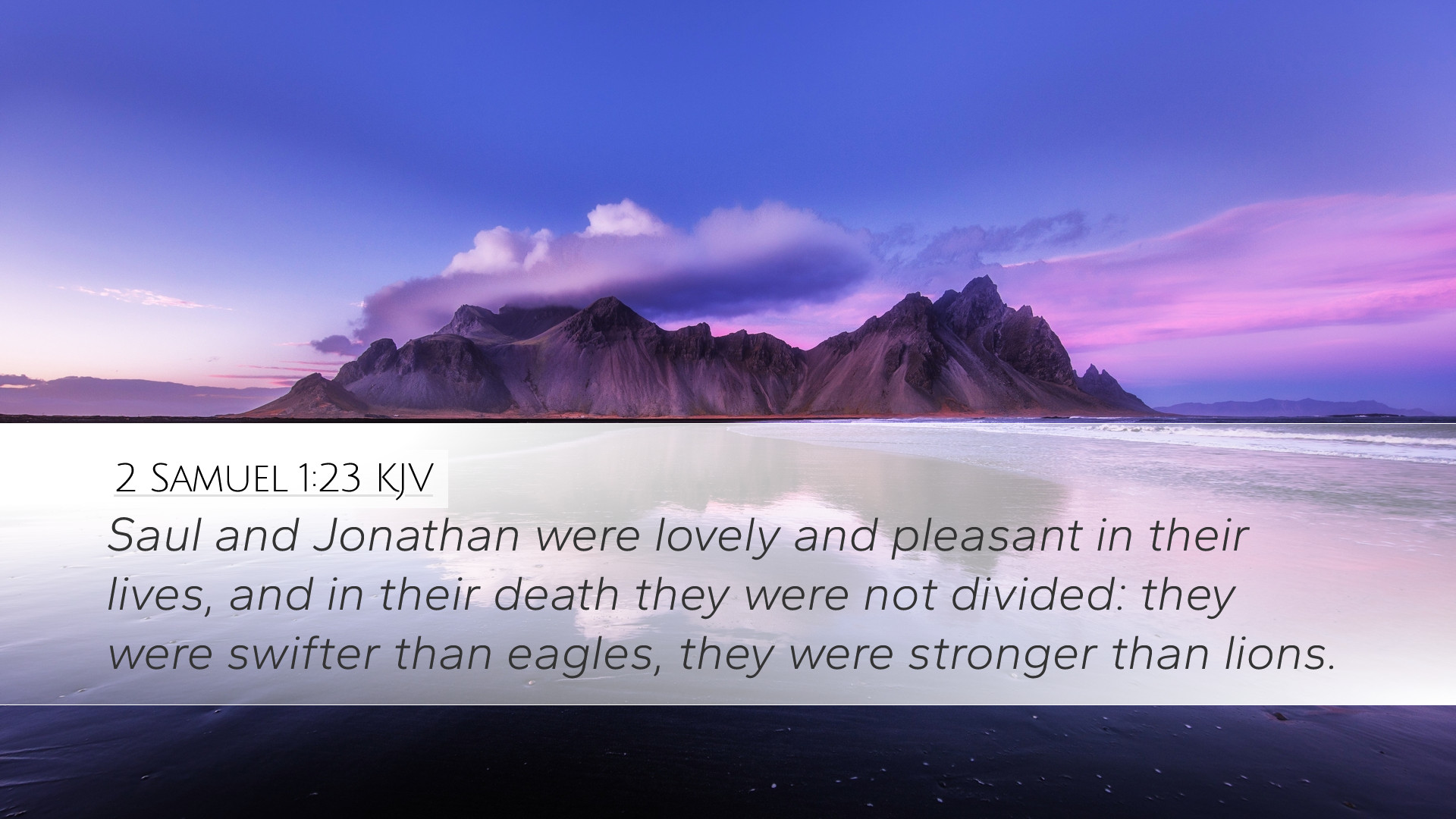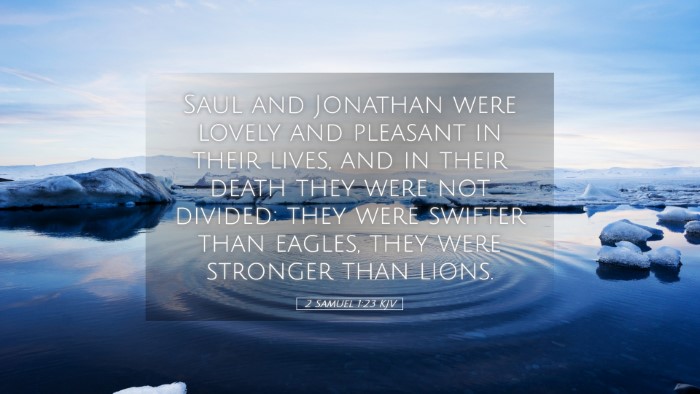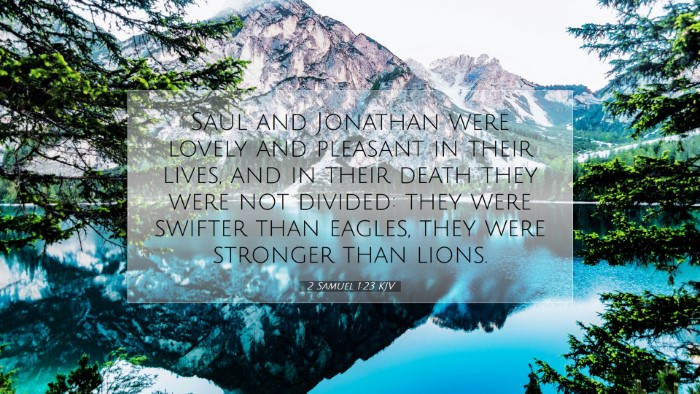Commentary on 2 Samuel 1:23
Bible Verse: "Saul and Jonathan were beloved and pleasant in their lives, and in their death they were not divided: they were swifter than eagles, they were stronger than lions." (2 Samuel 1:23, KJV)
Introduction
This verse encapsulates the profound relationship between Saul and his son Jonathan, as expressed in David's lamentation following the deaths of the two men. It holds significant theological and historical importance, providing insights into the nature of leadership, love, and the complexities of life and death in the unfolding narrative of Israel's monarchy.
Exegesis of the Verse
- Beloved and Pleasant: The words used to describe Saul and Jonathan emphasize the affection and admiration they garnered among the people. Matthew Henry notes that the accolades afforded to Saul, despite his failings, reflect the complexity of human relationships and leadership. Jonathan's loyalty, despite his father's moral decline, serves as a model of devoted friendship.
- United in Life and Death: Clarke emphasizes that their unity transcends the fate met by them in battle. This phrase serves as a poignant reminder of their close bond, one marred by Saul's erratic behaviors but anchored firmly in genuine love from Jonathan, who chose loyalty over ambition.
- Swifter than Eagles and Stronger than Lions: These metaphors illustrate both the physical prowess and the noble characteristics attributed to them. Albert Barnes highlights the common ancient Near-Eastern literary trope that conveys excellence and superiority. They were admired for their abilities, seen as the pinnacle of human strength and valor.
Theological Implications
The lamentation found in this verse carries rich theological reflections on death, love, and legacy. The intertwining of friendship and familial loyalty surfaces as a theme throughout the Scriptures, mirrored in how David mourns both leaders. These elements elicit critical considerations for pastoral care and ethical leadership today.
1. The Complexity of Leadership
Saul's Leadership: While Saul was king, he exhibited traits both admired and despised. Matthew Henry notes that despite his later failures and torments, his initial qualities as a leader earned him a place of honor. His early acts of valor and his tragic fall inspire discussions on the moral burdens of leadership.
Jonathan’s Loyalty: Jonathan represents an epitome of loyalty amidst adversity, as displayed in his persistent support for David despite the tension with his father. Albert Barnes illustrates that Jonathan's love for David foreshadows the self-sacrificial nature of Christ's love, challenging readers to consider the cost of true friendship.
2. Love in Life and Death
This verse functions on multiple levels, inviting audiences to reflect on the depth of relationships. Clarke emphasizes that true love does not falter with death; rather, a profound bond can persist and inspire even the living. The interpretation of love here challenges modern readers to consider what it means to honor relationships amidst trials.
3. Legacy and Memory
Honoring the Deceased: David’s lament signifies how public mourning can frame the legacy of individuals. The collective memory of a community shapes its identity, and David’s poetic tribute is a reflection of how leaders are celebrated or condemned based on the lives they lived.
Application for Contemporary Readers
- Leadership Lessons: Reflecting on the flaws and virtues identified in Saul can provide profound lessons on leadership, balancing authority and accountability.
- The Model of Friendship: Jonathan's relationship with David advocates for loyalty that transcends personal cost; a challenge for modern friendships which often falter under societal pressures.
- Values in Mourning: David's mourning exemplifies the importance of publicly grieving and celebrating those we have lost, offering a model for communal compassion and resilience in the face of death.
Conclusion
2 Samuel 1:23 serves as a rich tapestry of insights into the lives of Saul and Jonathan, weaving themes of love, loyalty, and the complexities of human relationships. Pastors, students, and scholars alike can draw from this verse deep reflections on the principles of leadership, friendship, and the nuanced experience of loss. In a world marked by disputes and division, this passage calls for unity, understanding, and a pursuit of honest, meaningful connections.


